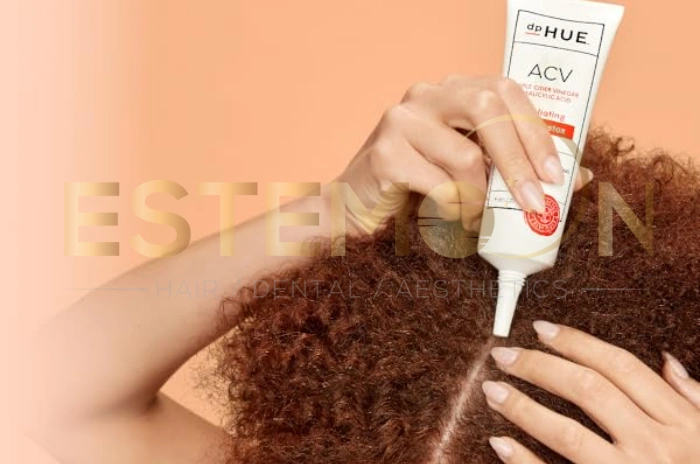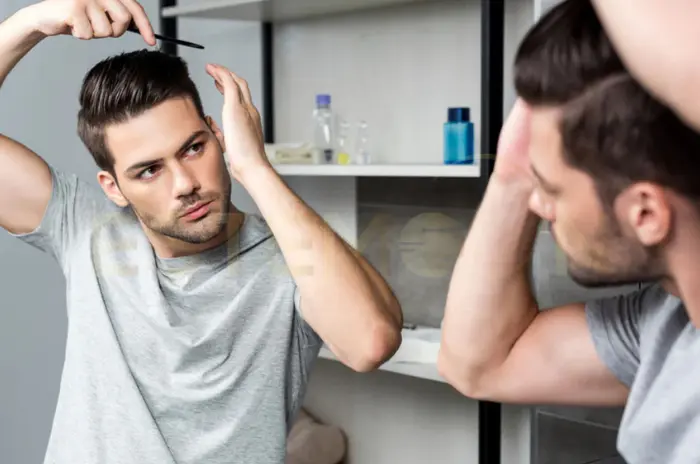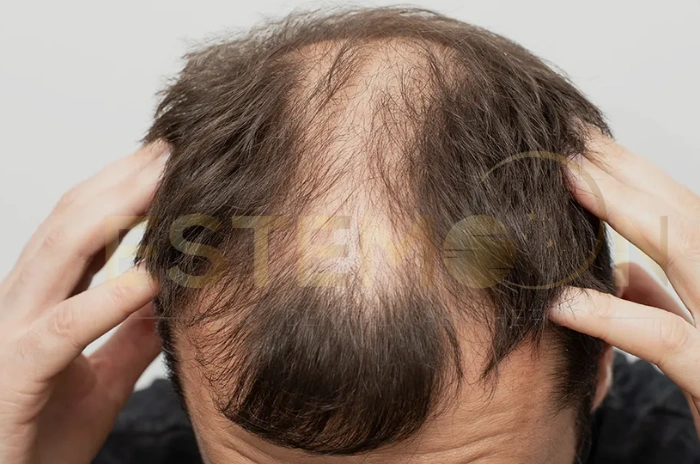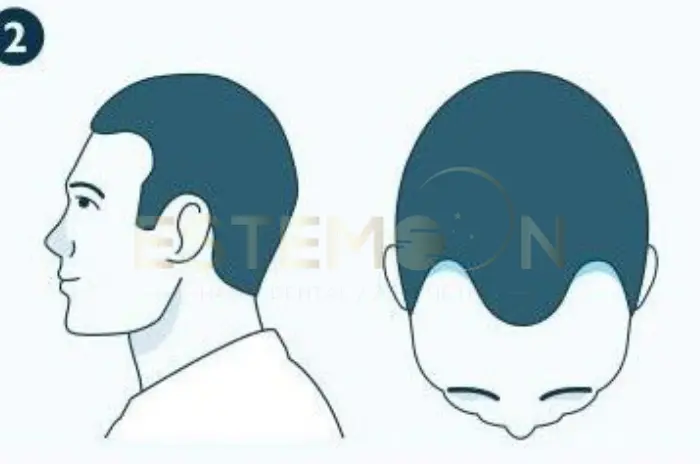Apple cider vinegar for hair has become increasingly popular as a natural solution for various hair and scalp concerns. This humble kitchen ingredient offers impressive benefits that can transform your hair care routine. From clarifying buildup to enhancing shine, an ACV rinse provides a gentle yet effective approach to healthier hair.
Many people struggle with dull, lifeless hair caused by product accumulation and imbalanced scalp conditions. Traditional shampoos and treatments often contain harsh chemicals that can strip natural oils or create further imbalance. Apple cider vinegar for hair presents a natural alternative that works with your hair’s biology rather than against it.
The acidic nature of apple cider vinegar makes it particularly effective for hair care. Its pH level closely matches that of healthy hair and scalp, making it an ideal ingredient for maintaining optimal conditions. Regular use of an ACV hair rinse can address multiple concerns simultaneously, from removing stubborn residue to promoting a healthier scalp environment.
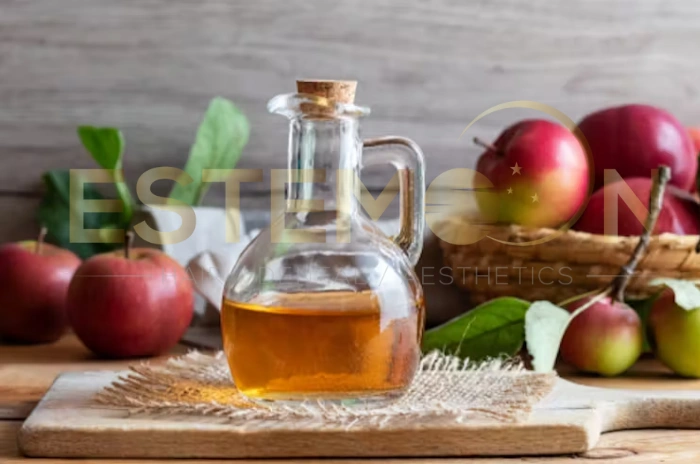
What an Apple Cider Vinegar Hair Rinse Does
An apple cider vinegar rinse functions as a powerful clarifying treatment that removes accumulated products, minerals, and impurities from your hair and scalp. The acetic acid in ACV breaks down buildup that regular shampoo might leave behind, including styling products, hard water deposits, and excess oils.
The rinse works by temporarily opening the hair cuticles, allowing deep cleansing while simultaneously smoothing the cuticle layers back down. This dual action results in cleaner hair that appears shinier and feels softer to the touch. The ACV rinse also helps redistribute natural oils along the hair shaft, promoting even moisture distribution.
Unlike harsh chemical clarifiers, apple cider vinegar scalp care provides gentle yet thorough cleansing. The natural enzymes and acids work gradually to dissolve buildup without stripping essential moisture. This makes it suitable for regular use without causing the dryness or irritation that stronger treatments might produce.
The antimicrobial properties of antimicrobial apple cider vinegar also play a crucial role in the rinse’s effectiveness. These properties help eliminate bacteria and fungi that can contribute to scalp issues, creating a cleaner, healthier environment for hair growth.
Key Benefits of Using Apple Cider Vinegar for Your Hair
Apple cider vinegar for hair offers numerous advantages that make it a valuable addition to any hair care routine. The primary benefit lies in its ability to remove product buildup effectively while maintaining the hair’s natural moisture balance. This clarifying action helps restore hair’s natural movement and bounce.
Hair shine improvement is another significant benefit of regular ACV use. The acidic nature of apple cider vinegar smooths the hair cuticles, creating a reflective surface that enhances natural shine. Hair appears glossier and healthier after consistent use of an ACV hair rinse.
The natural hair care approach offered by apple cider vinegar appeals to those seeking chemical-free alternatives. Unlike synthetic clarifiers, ACV provides gentle cleansing without introducing harsh ingredients that might cause long-term damage or irritation.
Apple cider vinegar frizzy hair treatment capabilities stem from its cuticle-smoothing properties. When cuticles lie flat, hair appears smoother and is less prone to frizzing in humid conditions. Regular use can significantly reduce frizz and improve overall hair manageability.
The versatility of apple cider vinegar for hair makes it suitable for various hair types and concerns. Whether dealing with oily roots, dry ends, or combination hair, ACV can be diluted and customized to meet specific needs.
How Apple Cider Vinegar Improves Scalp Health and pH Balance
Scalp health improvement represents one of the most significant benefits of using apple cider vinegar in hair care. The scalp’s natural pH ranges from 4.5 to 5.5, which is slightly acidic. Many commercial shampoos and treatments are alkaline, disrupting this natural balance and potentially causing irritation or other issues.
Hair and scalp pH balance restoration occurs when apple cider vinegar’s acidic properties help return the scalp to its optimal pH range. This balanced environment promotes healthier hair growth and reduces the likelihood of scalp problems developing. The restored pH also helps the scalp’s natural protective barrier function more effectively.
Apple cider vinegar scalp care extends beyond pH balancing to include antimicrobial benefits. The natural acids in ACV can help control the growth of harmful bacteria and fungi that thrive in imbalanced scalp environments. This protective action helps prevent various scalp conditions from developing or worsening.
The improved scalp circulation that often results from ACV rinses contributes to overall scalp health. The gentle stimulation provided during application can enhance blood flow to hair follicles, potentially supporting healthy hair growth and follicle function.
Regular use of apple cider vinegar for hair helps maintain the scalp’s natural microbiome balance. This balanced environment supports the beneficial bacteria that naturally exist on the scalp while discouraging harmful microorganisms.

How often to use an ACV rinse in your routine
The frequency of ACV rinse use depends on individual hair type, scalp condition, and specific concerns being addressed. For most people, using an apple cider vinegar hair rinse once or twice per week provides optimal benefits without over-processing the hair or scalp.
Those with oily hair or significant product buildup may benefit from more frequent use initially, gradually reducing to once weekly as hair condition improves. Clarifying hair needs vary among individuals, so monitoring your hair’s response helps determine the ideal frequency.
People with dry or chemically processed hair should start with less frequent applications, perhaps once every two weeks, to avoid any potential drying effects. The goal is to achieve natural hair care benefits while maintaining adequate moisture levels.
Apple cider vinegar scalp care for specific conditions like dandruff might require more frequent initial use, followed by maintenance applications. Starting with twice-weekly treatments and adjusting based on results typically works well for most scalp concerns.
The concentration of the rinse also affects how often it should be used. Stronger dilutions may require less frequent application, while more diluted versions can typically be used more regularly without adverse effects.
| Hair Type | ACV Rinse Frequency | Dilution Ratio | Key Benefits |
|---|---|---|---|
| Oily Hair | 2-3 times per week | 1:4 (ACV:Water) | Remove product buildup, control excess oil |
| Normal Hair | 1-2 times per week | 1:6 (ACV:Water) | Hair shine, maintain scalp health |
| Dry Hair | Once every 2 weeks | 1:8 (ACV:Water) | Gentle clarifying hair, avoid over-drying |
| Colored Hair | Once per week | 1:10 (ACV:Water) | Preserve color while gaining natural hair care benefits |
| Apple cider vinegar dandruff | 2 times per week initially | 1:5 (ACV:Water) | Antimicrobial treatment, balance scalp pH |
| Sensitive Scalp | Once every 10 days | 1:12 (ACV:Water) | Gentle apple cider vinegar scalp care |
How Apple Cider Vinegar Adds Shine and Smooths the Hair Cuticle
Apple cider vinegar hair shine enhancement occurs through the vinegar’s effect on the hair cuticle structure. The acidic nature of ACV causes the cuticle scales to contract and lie flat against the hair shaft, creating a smooth surface that reflects light more effectively.
When cuticles are raised or damaged, hair appears dull and feels rough to the touch. Apple cider vinegar for hair helps address this issue by temporarily tightening the cuticles, resulting in immediate shine improvement and smoother texture. This effect is noticeable even after the first use.
The smoothing action of an ACV rinse also helps reduce tangles and makes hair more manageable during styling. Smooth cuticles allow hair strands to glide past each other more easily, reducing friction that can lead to breakage or damage during brushing and styling.
Hair shine from apple cider vinegar treatments tends to be natural-looking rather than artificially glossy. The enhanced reflection comes from improved hair structure rather than coating products, making the shine appear healthy and authentic.
Long-term use of apple cider vinegar for hair can contribute to overall cuticle health. While individual treatments provide temporary smoothing, regular use may help maintain better cuticle condition over time, leading to consistently shinier, healthier-looking hair.
Potential Side Effects of Apple Cider Vinegar on Hair
While apple cider vinegar for hair is generally safe for most people, some potential side effects should be considered. The most common issue is dryness, which can occur if ACV is used too frequently or in concentrations that are too strong for individual hair types.
Scalp irritation represents another possible side effect, particularly for those with sensitive skin. Apple cider vinegar scalp care should always begin with diluted solutions and patch testing to ensure compatibility. Starting with weaker concentrations allows the scalp to adjust gradually.
Color-treated hair may experience some fading with frequent ACV rinse use. The clarifying properties that remove product buildup can also affect hair color, particularly semi-permanent or temporary treatments. Those with colored hair should use ACV sparingly and monitor for color changes.
Over-use of apple cider vinegar for hair can potentially disrupt the natural oil balance, leading to either excessive dryness or rebound oil production. Finding the right frequency and concentration prevents these imbalances from developing.
Some individuals may experience temporary increased frizz immediately after ACV use, particularly if hair is damaged or highly porous. This typically resolves as hair adjusts to the treatment and cuticles become healthier over time.
The Role of ACV in Treating Dandruff and Itchiness
Apple cider vinegar dandruff treatment capabilities stem from its antimicrobial and pH-balancing properties. Many dandruff cases result from fungal overgrowth or scalp pH imbalances, both of which ACV can help address effectively.
The antimicrobial apple cider vinegar properties help control Malassezia, a yeast that contributes to dandruff formation in many people. Regular use of diluted ACV can help maintain a scalp environment that discourages excessive fungal growth while supporting beneficial microorganisms.
Apple cider vinegar itchy scalp relief occurs through several mechanisms. The pH balancing helps reduce irritation caused by alkaline buildup, while the antimicrobial action addresses potential infections that might cause itching. The gentle exfoliating effect also helps remove dead skin cells that can contribute to itchiness.
The anti-inflammatory properties of apple cider vinegar scalp care can provide soothing relief for inflamed or irritated scalp conditions. This makes it particularly beneficial for those dealing with seborrheic dermatitis or other inflammatory scalp conditions.
Consistency is key when using apple cider vinegar dandruff treatments. While some improvement may be noticeable quickly, achieving lasting results typically requires several weeks of regular use to fully rebalance the scalp environment.
FAQs About Apple Cider Vinegar for Hair Benefits and How to Use It
How does an apple cider vinegar rinse work?
An apple cider vinegar rinse works by using acetic acid to clarify hair, balance scalp pH, and smooth cuticles while providing antimicrobial benefits.
What are the benefits of using ACV?
ACV rinse benefits include removing buildup, enhancing shine, balancing scalp pH, reducing frizz, and providing natural dandruff treatment.
Are there any side effects to using ACV?
Potential side effects include dryness, scalp irritation, and color fading if used too frequently or in excessive concentrations.
How often should I use an ACV rinse?
Most people should use an apple cider vinegar hair rinse once or twice weekly, adjusting frequency based on hair type and individual response.
Follow us on social media for updates, tips, and patient success stories:

